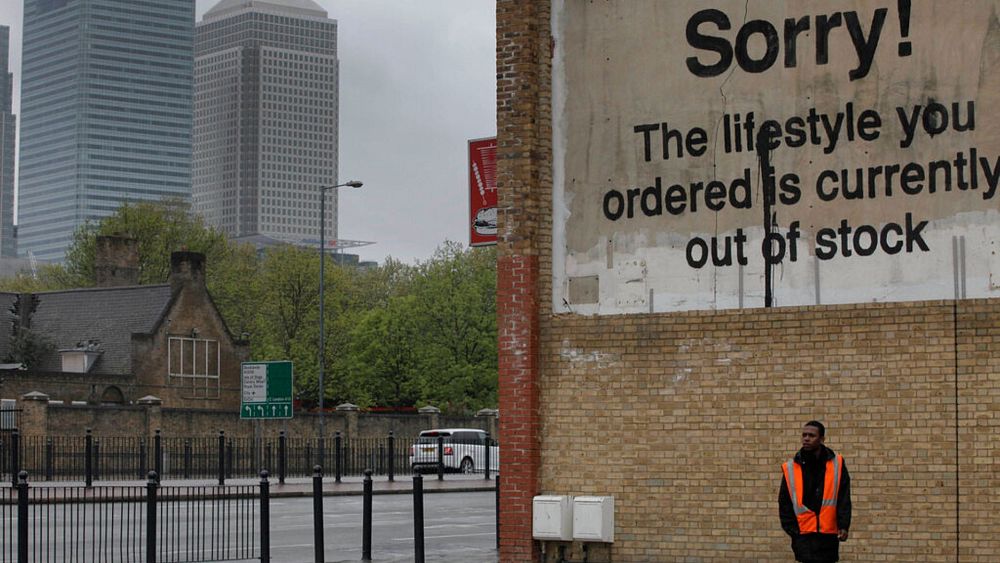Table of Contents
Extra than fifty percent of Europeans say their spending budget has tightened in excess of the earlier three several years, in accordance to a current study.
Increasing prices have pushed nearly 1-3rd of Europeans into a “precarious” financial circumstance, a new study has uncovered.
The second European Barometer on Poverty and Precariousness examined Europeans’ capability to make purchases and located that it has declined above the previous a few years, forcing a vast majority of them skip foods and vacation resort to generating hard financial options.
Of the 10,000 surveyed by Ipsos for French Secours Populaire, 29% stated their fiscal situation was “precarious” and any unanticipated price would make their stability tip.
Nearly 1 in two Europeans believe that they facial area a substantial danger of slipping into a precarious problem in the up coming couple of months, succumbing to soaring prices and somewhat stagnant fork out. The 2021 at-threat-of-poverty fee for the total populace of the EU stood at 17%, as for every Eurostat.
Only 15% mentioned they had been assured and did not sense the will need to shell out attention to their everyday expenditures.
Tough funds pressure sophisticated alternatives
A vast vast majority of Europeans have previously had to compromise on their choices thanks to complicated economic circumstances, in accordance to the study results.
Rampant inflation in almost each and every sector pressured these “complicated possibilities,” which consist of skipping a meal irrespective of remaining hungry. Pretty much one in three Europeans claimed they have skipped a meal when hungry – with Greece and Moldova getting especially superior quantities.
Other compromises consist of not turning heaters on, borrowing dollars and not managing a wellbeing trouble in the face of the rising expenditures.
A study conducted by the Joseph Rowntree Foundation (JRF) in June discovered 5.7 million very low-money homes in the British isles missing more than enough funds for foodstuff, which it known as a “horrendous new regular”.
From only becoming in a position to get food items which is discounted to turning to food stuff banking institutions operate by significant associations to feed by themselves, increasing food stuff charges have had varied – yet sizable – results on food items patterns, in accordance to the study.
Of the folks surveyed, 38% say they are no extended in a position to have a few foods a working day on a common basis, whilst only 42% said they have never skipped their breakfast, lunch, and meal due to economic constraints.
The severity of the scenario was mirrored in a quantity of parents’ solutions with some expressing they have experienced to limit their own taking in to offer for their youngsters.
21% of the mothers and fathers surveyed explained they have experience at least one particular instance of “not eating more than enough” in get to feed their offspring.
Greater part worried about coping with inflation
While rising inflation figures have, in truth, commenced to stall, greater foodstuff and ingredient rates have not nonetheless fallen, consequently the ongoing, diminished skill to obtain create.
Europe’s inflation figures tripled in 2022, marking the highest growth fee of all time on the back of towering consumer rates for housing, h2o, gasoline, and other fees – which enhanced by 18% in a yr.
Not only did numerous Europeans say their fiscal ailment was exceptionally challenging, but also admitted that they have been at the knife edge when it arrived to dealing with inflation.
Around half of these questioned, throughout most international locations, reported they were worried about coping with inflation, fearing an boost in food items, electricity, and miscellaneous expenses.
According to the research, 62% be concerned about soaring foodstuff costs, although unpredicted expenditures and fuel prices be concerned 59% of the surveyed inhabitants.





